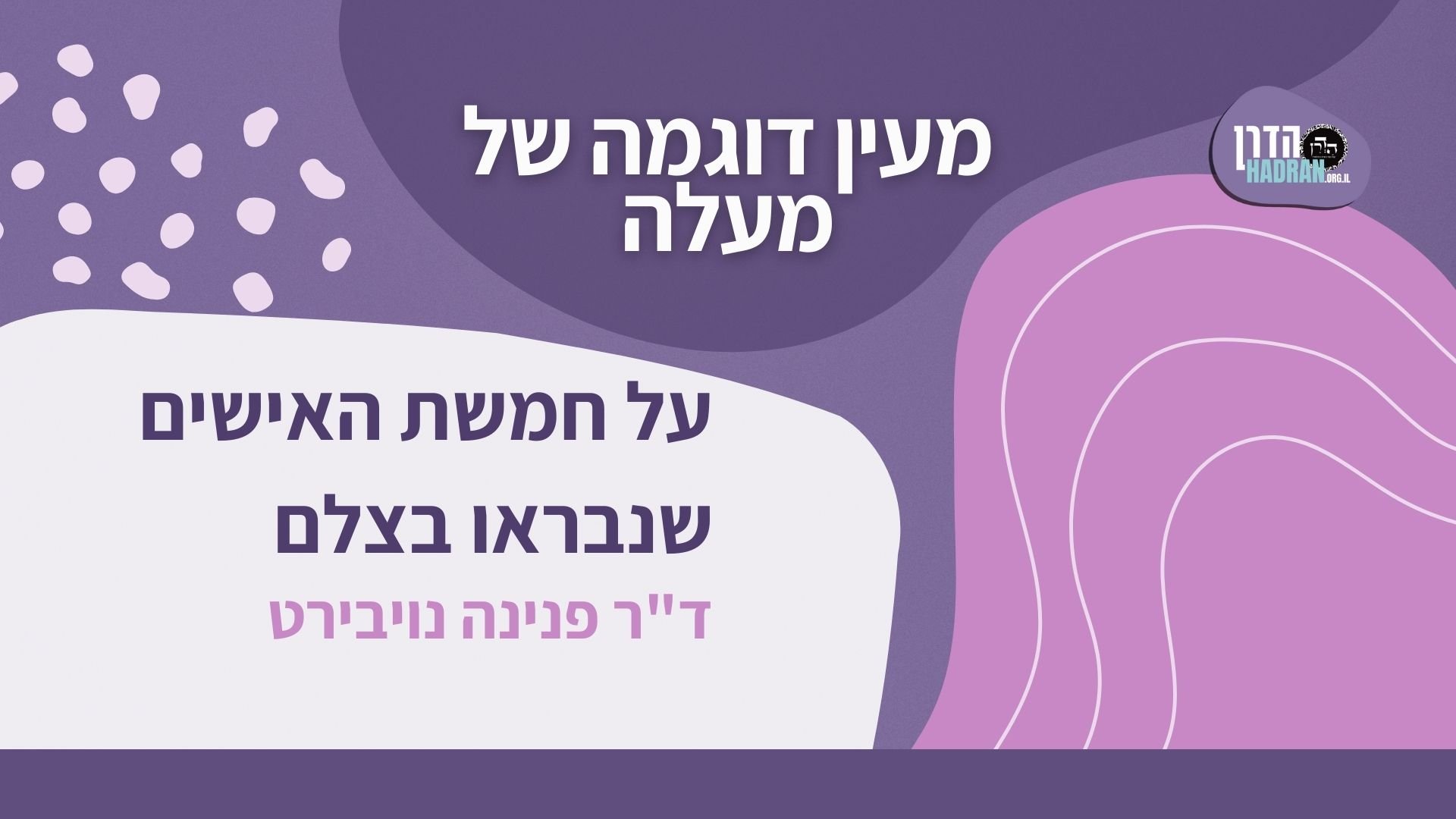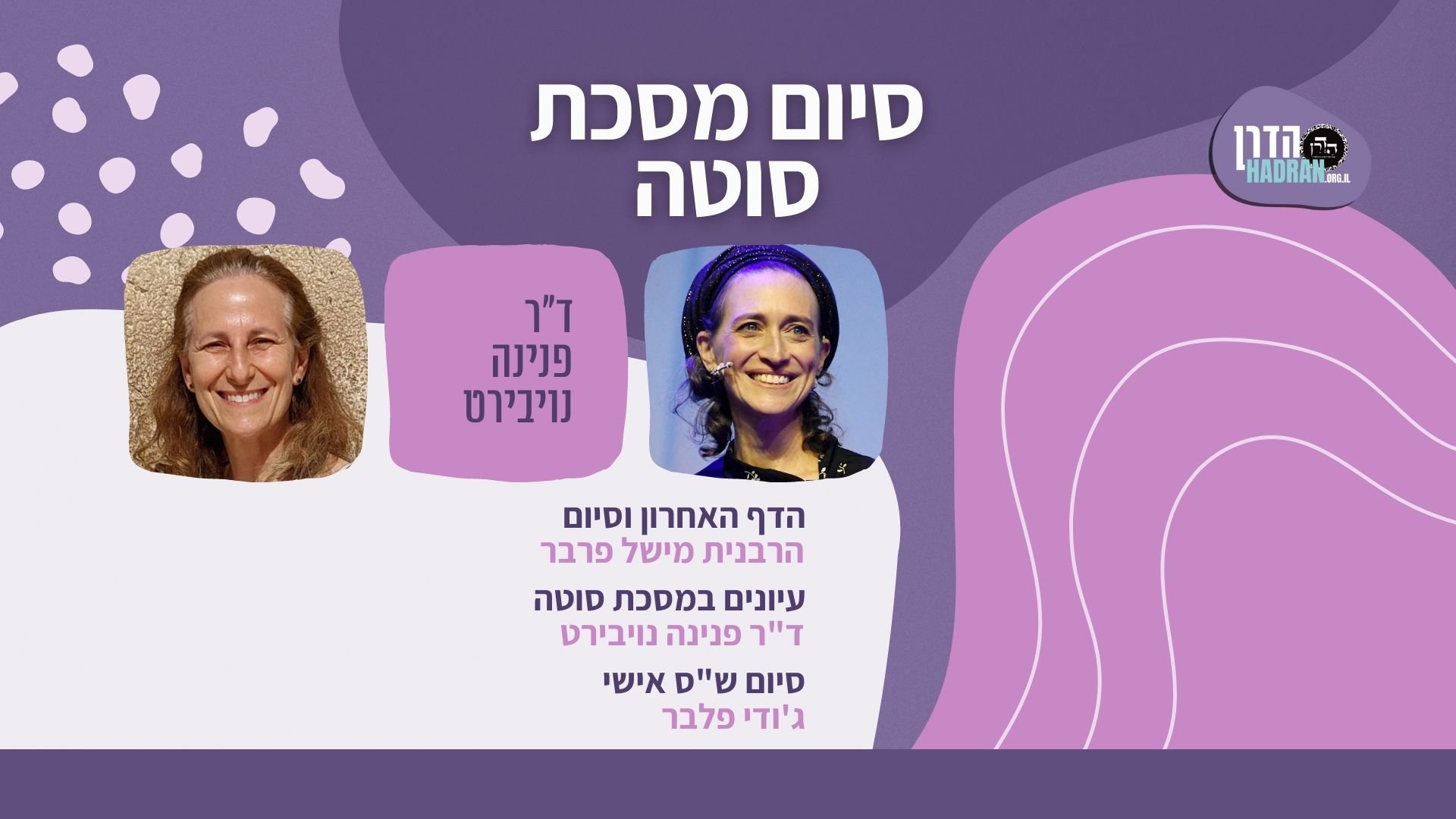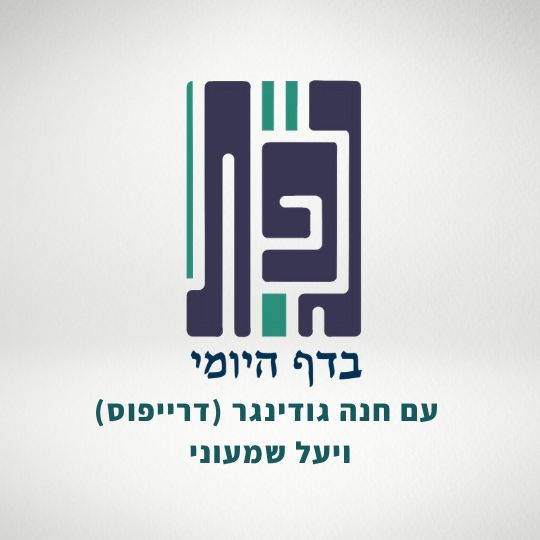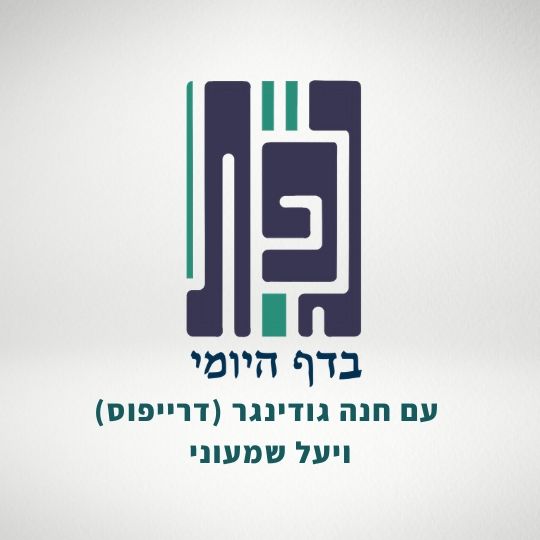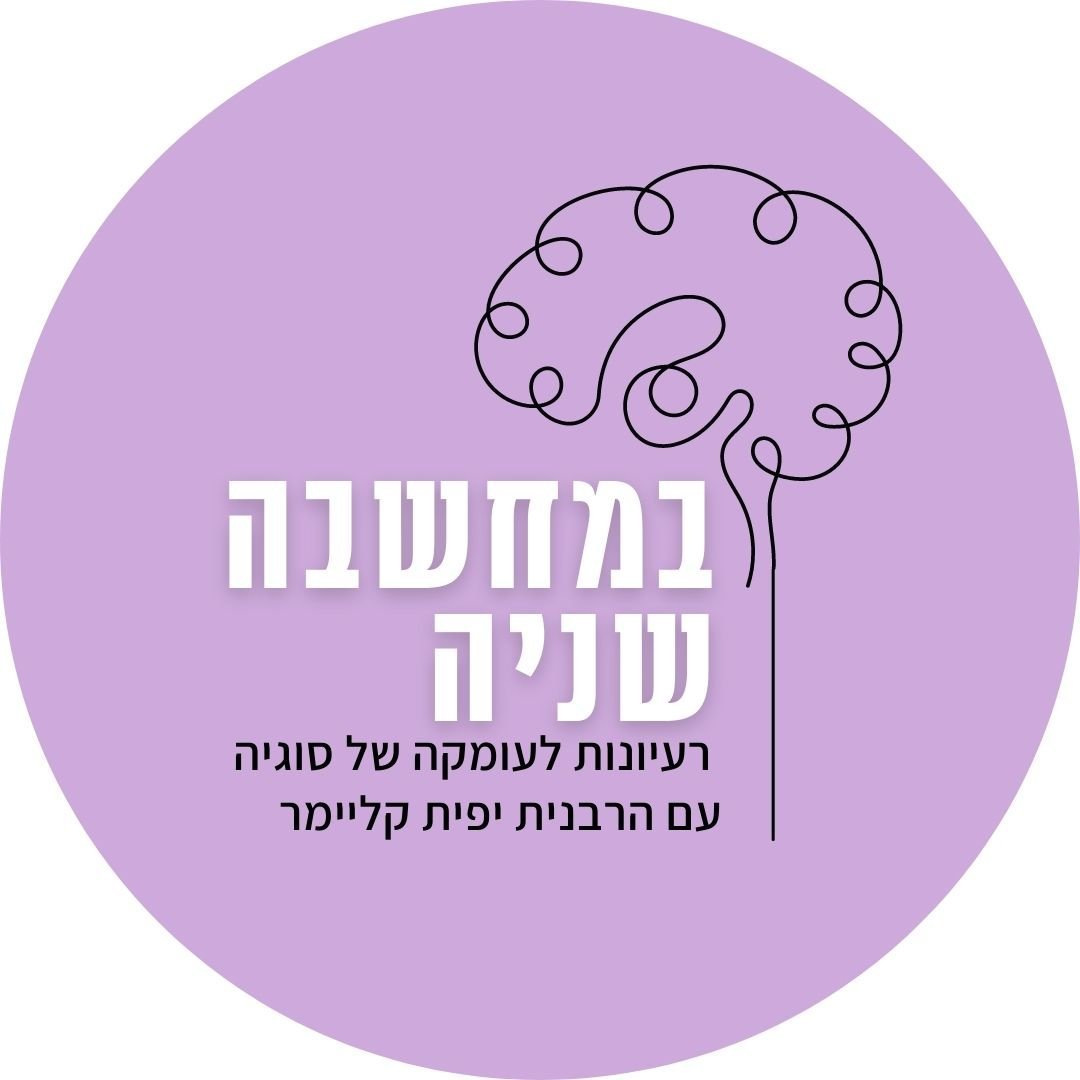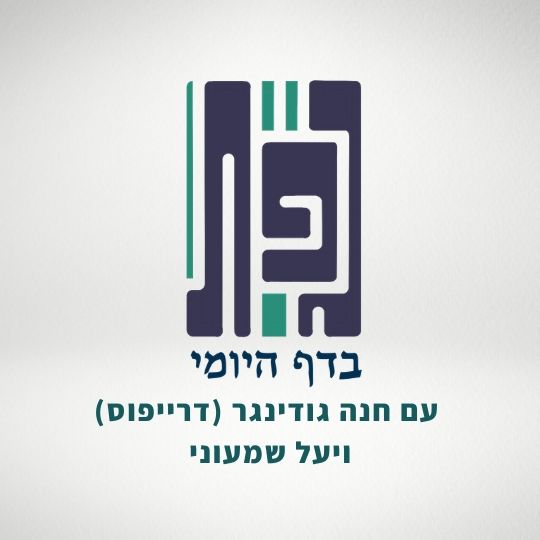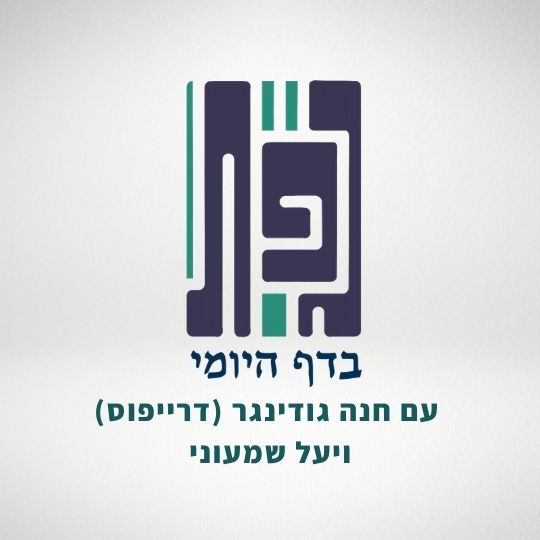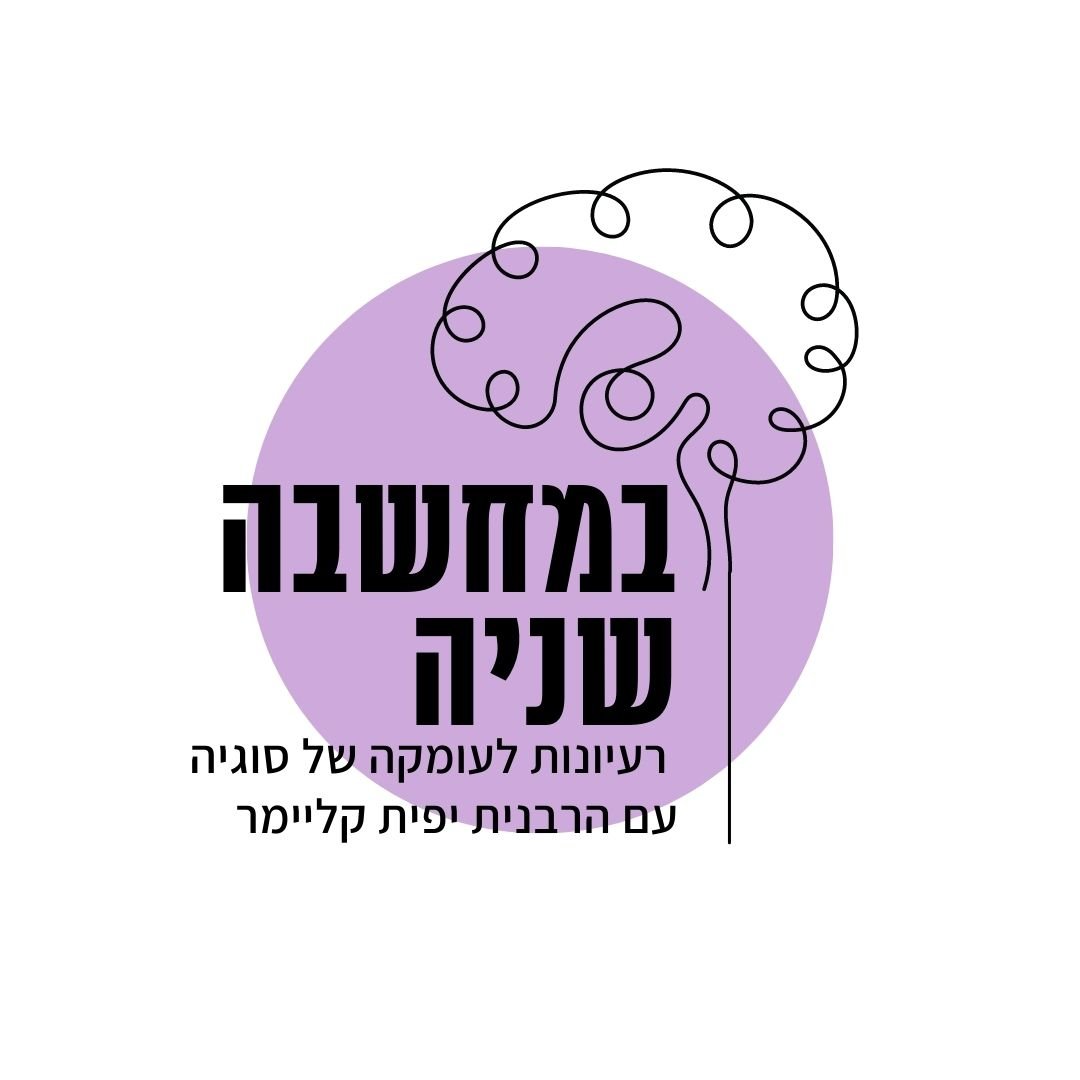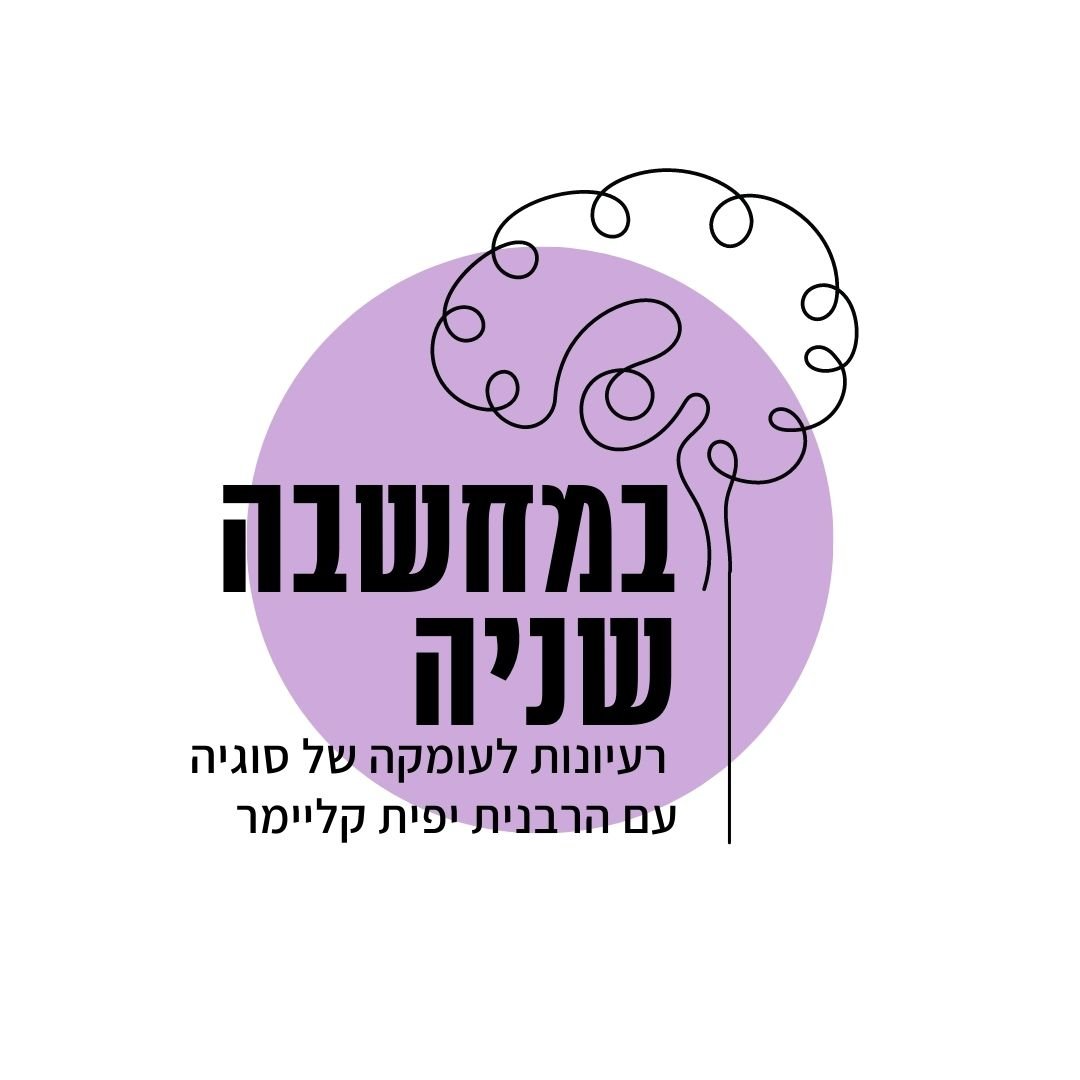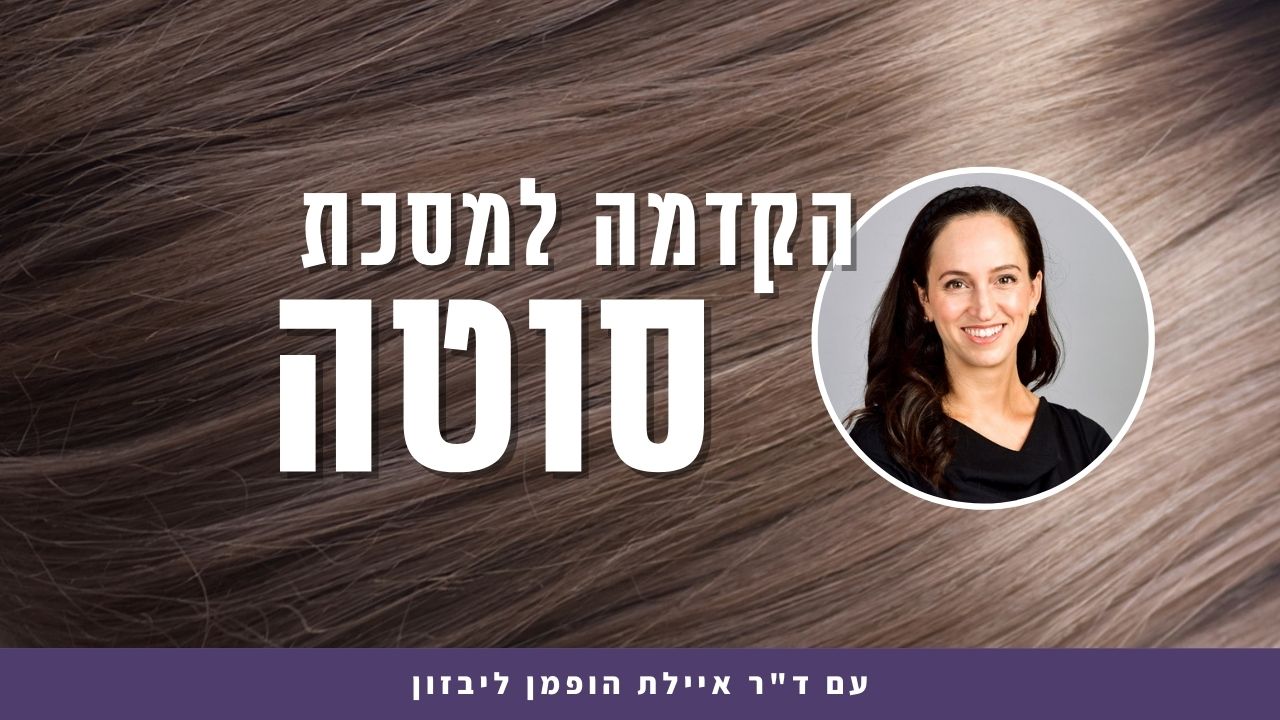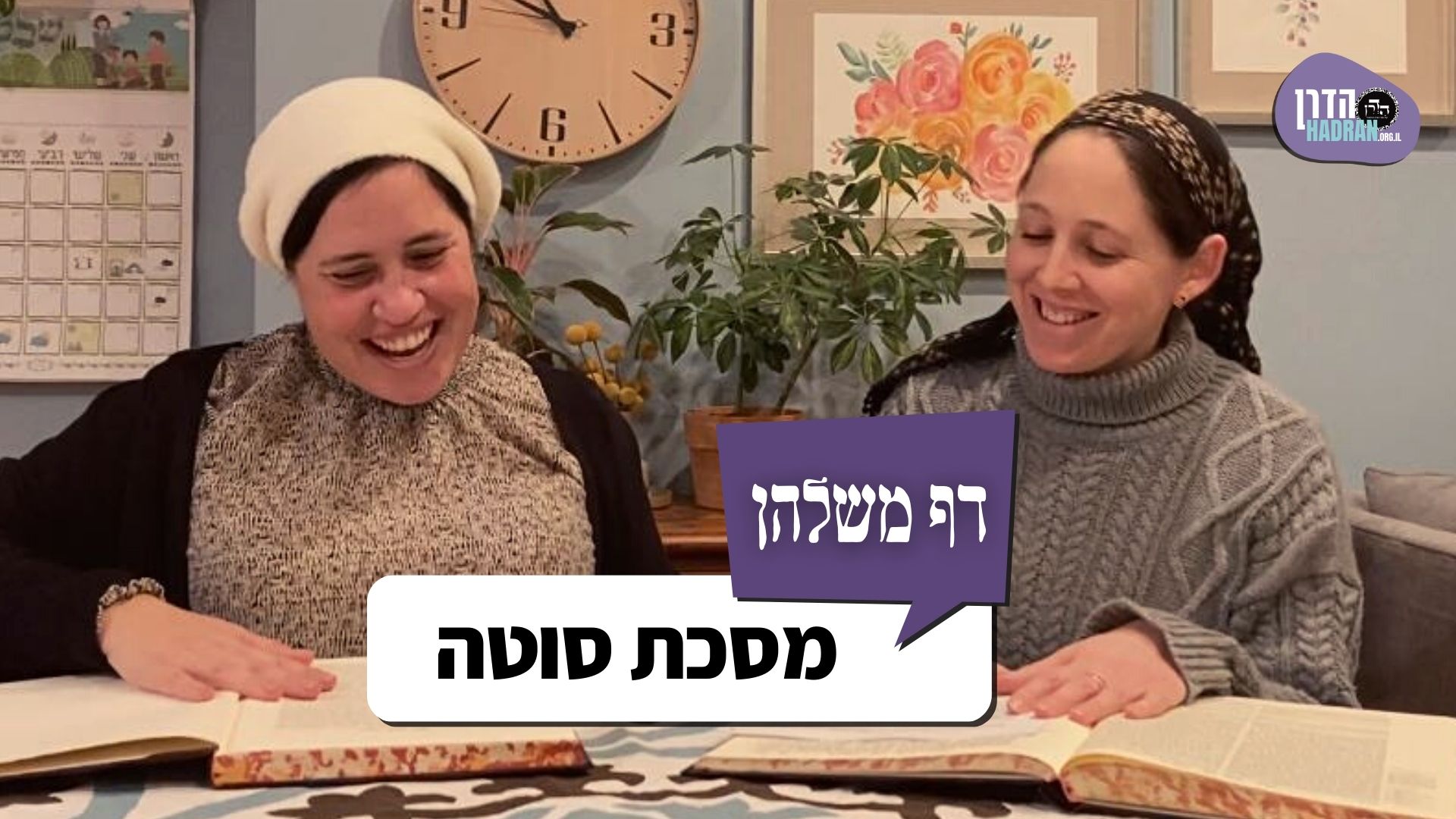סוטה מ
בִּנְעִילָה דְּיוֹמָא דְכִיפּוּרֵי מַאי אָמַר? אָמַר מָר זוּטְרָא, וְאָמְרִי לַהּ בְּמַתְנִיתָא: ״הִנֵּה כִי כֵן יְבֹרַךְ גָּבֶר יְרֵא ה׳״. ״יְבָרֶכְךָ ה׳ מִצִּיּוֹן וּרְאֵה בְּטוּב יְרוּשָׁלִָם כֹּל יְמֵי חַיֶּיךָ״. ״וּרְאֵה בָנִים לְבָנֶיךָ שָׁלוֹם עַל יִשְׂרָאֵל״.
During the closing prayer [ne’ila] of Yom Kippur, which also includes the Priestly Benediction, what do the people say? Mar Zutra says, and some say that this was taught in a baraita: “Behold, surely thus shall the man who fears the Lord be blessed” (Psalms 128:4), “The Lord shall bless you out of Zion, and you shall see the good of Jerusalem all the days of your life” (Psalms 128:5), and “And see your children’s children. Peace be upon Israel” (Psalms 128:6).
הֵיכָן אוֹמְרָן? רַב יוֹסֵף אָמַר: בֵּין כׇּל בְּרָכָה וּבְרָכָה, וְרַב שֵׁשֶׁת אָמַר: בְּהַזְכָּרַת הַשֵּׁם.
The Gemara asks: Where does the congregation say these verses during the Priestly Benediction? Rav Yosef says: They are said between each and every blessing. And Rav Sheshet says: They are said during the mention of the name of God in each of the three blessings.
פְּלִיגִי בַּהּ רַב מָרִי וְרַב זְבִיד. חַד אָמַר: פְּסוּקָא לָקֳבֵל פְּסוּקָא, וְחַד אָמַר: אַכֹּל פְּסוּקָא אָמַר לְהוּ לְכוּלְּהוּ.
Rav Mari and Rav Zevid disagree about this matter. One says: The congregation recites one verse at a time, corresponding to the verse that the priests recite. And one says: For every single verse that the priests recite, the congregation says all three verses.
אָמַר רַבִּי חִיָּיא בַּר אַבָּא: כׇּל הָאוֹמְרָן בַּגְּבוּלִין — אֵינוֹ אֶלָּא טוֹעֶה. אָמַר רַבִּי חֲנִינָא בַּר פָּפָּא: תִּדַּע דִּבְמִקְדָּשׁ נָמֵי לָא מִיבְּעֵי לְמֵימְרִינְהוּ, כְּלוּם יֵשׁ לְךָ עֶבֶד שֶׁמְּבָרְכִין אוֹתוֹ וְאֵינוֹ מַאֲזִין?
Rabbi Ḥiyya bar Abba says: Anyone who recites these verses in the outlying areas, i.e., outside the Temple, is nothing other than mistaken in his practice. Rabbi Ḥanina bar Pappa said: You should know that in the Temple also people should not recite these verses. Do you have a servant who is being blessed and does not listen to the blessing, but rather speaks at the same time?
אָמַר רַבִּי אַחָא בַּר חֲנִינָא: תֵּדַע דְּבִגְבוּלִין נָמֵי מִיבְּעֵי לְמֵימְרִינְהוּ, כְּלוּם יֵשׁ עֶבֶד שֶׁמְּבָרְכִין אוֹתוֹ וְאֵין מַסְבִּיר פָּנִים? אָמַר רַבִּי אֲבָהוּ: מֵרֵישׁ הֲוָה אָמֵינָא לְהוּ, כֵּיוָן דַּחֲזֵינָא לֵיהּ לְרַבִּי אַבָּא דְּמִן עַכּוֹ דְּלָא אֲמַר לְהוּ — אֲנָא נָמֵי לָא אָמֵינָא לְהוּ.
Conversely, Rabbi Aḥa bar Ḥanina says: You should know that in the outlying areas one is also required to say these verses. Is there a servant who is being blessed and his face does not brighten? Therefore, one must recite these verses to give thanks for receiving the Priestly Benediction. Rabbi Abbahu says: At first, I would recite these verses, but since I saw that Rabbi Abba of Akko does not say them, I also do not recite them anymore.
וְאָמַר רַבִּי אֲבָהוּ: מֵרֵישׁ הֲוָה אָמֵינָא עִינְוְתָנָא אֲנָא. כֵּיוָן דַּחֲזֵינָא לֵיהּ לְרַבִּי אַבָּא דְּמִן עַכּוֹ דְּאָמַר אִיהוּ חַד טַעְמָא וְאָמַר אָמוֹרֵיהּ חַד טַעְמָא וְלָא קָפֵיד — אָמֵינָא לָאו עִינְוְתָנָא אֲנָא.
And Rabbi Abbahu says: At first, I would say to myself that I was humble. Since I saw that Rabbi Abba of Akko himself stated one reason for a matter, and his interpreter stated one other reason of his own rather than delivering the reason that Rabbi Abba stated, and yet Rabbi Abba did not mind, I say to myself that I am not humble.
וּמַאי עִינְוְותָנוּתֵיהּ דְּרַבִּי אֲבָהוּ? דַּאֲמַרָה לַהּ דְּבֵיתְהוּ דְּאָמוֹרֵיהּ דְּרַבִּי אֲבָהוּ לִדְבֵיתֵיהּ דְּרַבִּי אֲבָהוּ: הָא דִּידַן לָא צְרִיךְ לֵיהּ לְדִידָךְ, וְהַאי דְּגָחֵין וְזָקֵיף עֲלֵיהּ — יְקָרָא בְּעָלְמָא הוּא דְּעָבֵיד לֵיהּ. אֲזַלָא דְּבֵיתְהוּ וַאֲמַרָה לֵיהּ לְרַבִּי אֲבָהוּ. אֲמַר לַהּ: וּמַאי נָפְקָא לִיךְ מִינַּהּ? מִינִּי וּמִינֵּיהּ יִתְקַלַּס עִילָּאָה.
The Gemara asks: And what was the humility of Rabbi Abbahu? The Gemara relates that Rabbi Abbahu’s interpreter’s wife said to Rabbi Abbahu’s wife: This one of ours, i.e., my husband, has no need for your husband Rabbi Abbahu, as he could teach everything on his own. And the fact that he bends over to listen to Rabbi Abbahu, and then stands up above him, and repeats his words to the congregants is merely to show respect for him. Rabbi Abbahu’s wife went and told this to Rabbi Abbahu. He said to her: And what difference does it make to you? Through me and through him the One above will be exalted, and it does not matter which one of us is teaching.
וְתוּ, רַבִּי אֲבָהוּ אִימְּנוֹ רַבָּנַן עֲלֵיהּ לְמִמְנְיֵיהּ בְּרֵישָׁא, כֵּיוָן דְּחַזְיֵהּ לְרַבִּי אַבָּא דְּמִן עַכּוֹ דִּנְפִישִׁי לֵיהּ בַּעֲלֵי חוֹבוֹת, אֲמַר לְהוּ: אִיכָּא רַבָּה.
And furthermore, in another example of his humility, the Sages were counted and reached a decision to appoint Rabbi Abbahu to be the head of the yeshiva. Since he saw that Rabbi Abba of Akko had many creditors and was impoverished, he attempted to get him out of debt. He said to them: There is a man who is greater than me, Rabbi Abba.
רַבִּי אֲבָהוּ וְרַבִּי חִיָּיא בַּר אַבָּא אִיקְּלַעוּ לְהָהוּא אַתְרָא, רַבִּי אֲבָהוּ דְּרַשׁ בְּאַגַּדְתָּא, רַבִּי חִיָּיא בַּר אַבָּא דְּרַשׁ בִּשְׁמַעְתָּא. שַׁבְקוּהּ כּוּלֵּי עָלְמָא לְרַבִּי חִיָּיא בַּר אַבָּא, וַאֲזוּל לְגַבֵּיהּ דְּרַבִּי אֲבָהוּ. חֲלַשׁ דַּעְתֵּיהּ. אֲמַר לֵיהּ: אֶמְשֹׁל לְךָ מָשָׁל לְמָה הַדָּבָר דּוֹמֶה: לִשְׁנֵי בְּנֵי אָדָם, אֶחָד מוֹכֵר אֲבָנִים טוֹבוֹת וְאֶחָד מוֹכֵר מִינֵי סִידְקִית, עַל מִי קוֹפְצִין — לֹא עַל זֶה שֶׁמּוֹכֵר מִינֵי סִידְקִית?
The Gemara relates another example of his humility: Rabbi Abbahu and Rabbi Ḥiyya bar Abba happened to come to a certain place. Rabbi Abbahu taught matters of aggada, and at the same time Rabbi Ḥiyya bar Abba taught halakha. Everyone left Rabbi Ḥiyya bar Abba and went to Rabbi Abbahu, and Rabbi Ḥiyya was offended. Rabbi Abbahu said to him, to appease him: I will tell you a parable: To what is this matter comparable? It is comparable to two people, one who sells precious stones and one who sells small items [sidkit]. Upon whom do the customers spring? Don’t they spring upon the one who sells small items? Similarly, you teach lofty and important matters that do not attract many people. Everyone comes to me because I teach minor matters.
כׇּל יוֹמָא: הֲוָה מַלְוֵה רַבִּי חִיָּיא בַּר אַבָּא לְרַבִּי אֲבָהוּ עַד אוּשְׁפִּיזֵיהּ מִשּׁוּם יְקָרָא דְבֵי קֵיסָר. הָהוּא יוֹמָא אַלְוְיֵהּ רַבִּי אֲבָהוּ לְרַבִּי חִיָּיא בַּר אַבָּא עַד אוּשְׁפִּיזֵיהּ, וַאֲפִילּוּ הָכִי לָא אִיתּוֹתַב דַּעְתֵּיהּ מִינֵּיהּ.
The Gemara relates that every day Rabbi Ḥiyya bar Abba would escort Rabbi Abbahu to his lodging place [ushpizei] out of respect for the house of the emperor, with which Rabbi Abbahu was associated. On that day, Rabbi Abbahu escorted Rabbi Ḥiyya bar Abba to his lodging place, and even so, Rabbi Ḥiyya bar Abba’s mind was not at ease with Rabbi Abbahu and he felt insulted.
בִּזְמַן שֶׁשְּׁלִיחַ צִבּוּר אוֹמֵר מוֹדִים, הָעָם מָה הֵם אוֹמְרִים? אָמַר רַב: ״מוֹדִים אֲנַחְנוּ לָךְ ה׳ אֱלֹהֵינוּ עַל שֶׁאָנוּ מוֹדִים לָךְ״. וּשְׁמוּאֵל אָמַר: ״אֱלֹהֵי כׇּל בָּשָׂר, עַל שֶׁאָנוּ מוֹדִים לָךְ״. רַבִּי סִימַאי אוֹמֵר: ״יוֹצְרֵנוּ יוֹצֵר בְּרֵאשִׁית עַל שֶׁאָנוּ מוֹדִים לָךְ״. נְהַרְדָּעֵי אָמְרִי מִשְּׁמֵיהּ דְּרַבִּי סִימַאי: ״בְּרָכוֹת וְהוֹדָאוֹת לְשִׁמְךָ הַגָּדוֹל עַל שֶׁהֶחֱיִיתָנוּ וְקִיַּימְתָּנוּ, עַל שֶׁאָנוּ מוֹדִים לָךְ״. רַב אַחָא בַּר יַעֲקֹב מְסַיֵּים בַּהּ הָכִי: ״כֵּן תְּחַיֵּינוּ וּתְחׇנֵּנוּ, וּתְקַבְּצֵנוּ, וְתֶאֱסוֹף גָּלִיּוֹתֵינוּ לְחַצְרוֹת קׇדְשֶׁךָ, לִשְׁמוֹר חוּקֶּיךָ וְלַעֲשׂוֹת רְצוֹנְךָ בְּלֵבָב שָׁלֵם, עַל שֶׁאָנוּ מוֹדִים לָךְ״.
§ The Gemara returns to discuss the response of the congregants to certain parts of the prayer service. While the prayer leader is reciting the blessing of: We give thanks, what do the people say? Rav says that they say: We give thanks to You, Lord our God, for the merit of giving thanks to You. And Shmuel says that one should say: God of all living flesh, for the merit of giving thanks to You. Rabbi Simai says that one should say: Our Creator, Who created everything in the beginning, for the merit of giving thanks to You. The Sages of Neharde’a say in the name of Rabbi Simai that one should say: We offer blessings and praises to Your great name, for You have given us life and sustained us, for giving thanks to You. Rav Aḥa bar Ya’akov would finish the blessing as follows: So may You give us life, and show us favor, and collect us, and gather our exiles into Your sacred courtyards, in order to observe Your laws and to fulfill Your will wholeheartedly, for giving thanks to You.
אָמַר רַב פָּפָּא: הִילְכָּךְ נֵימְרִינְהוּ לְכוּלְּהוּ.
Rav Pappa said: These Sages each added a different element to the prayer. Therefore, we should combine them together and recite all of them.
אָמַר רַבִּי יִצְחָק: לְעוֹלָם תְּהֵא אֵימַת צִבּוּר עָלֶיךָ, שֶׁהֲרֵי כֹּהֲנִים פְּנֵיהֶם כְּלַפֵּי הָעָם וַאֲחוֹרֵיהֶם כְּלַפֵּי שְׁכִינָה.
§ Rabbi Yitzḥak says: The awe of the public should always be upon you, i.e., one must always treat the public courteously. As when the priests bless the people they face the people and their backs are toward the Divine Presence, out of respect for the congregation.
רַב נַחְמָן אָמַר: מֵהָכָא: ״וַיָּקׇם דָּוִיד הַמֶּלֶךְ עַל רַגְלָיו וַיֹּאמֶר שְׁמָעוּנִי אַחַי וְעַמִּי״. אִם ״אַחַי״ לָמָּה ״עַמִּי״, וְאִם ״עַמִּי״ לָמָּה ״אַחַי״? אָמַר רַבִּי אֶלְעָזָר: אָמַר לָהֶם דָּוִד לְיִשְׂרָאֵל: אִם אַתֶּם, שׁוֹמְעִין לִי — אַחַי אַתֶּם, וְאִם לָאו — עַמִּי אַתֶּם, וַאֲנִי רוֹדֶה אֶתְכֶם בְּמַקֵּל.
Rav Naḥman said that this principle is derived from here: “Then King David stood up upon his feet, and said: Hear me, my brethren, and my people” (I Chronicles 28:2). Evidently, King David stood up to address the people rather than remain seated. If he said “my brethren,” why did he say “my people”? And if he said “my people” why did he say “my brethren”? Rabbi Elazar says: David said to the Jewish people: If you listen to me, you are my brethren. And if you do not listen to me willingly, you are my people and I am your king, and I will rule over you by force with a staff. This shows that if the nation acted properly, David would relate to them respectfully.
רַבָּנַן אָמְרִי מֵהָכָא: דְּאֵין הַכֹּהֲנִים רַשָּׁאִין לַעֲלוֹת בְּסַנְדְּלֵיהֶן לַדּוּכָן. וְזֶהוּ אַחַת מִתֵּשַׁע תַּקָּנוֹת שֶׁהִתְקִין רַבָּן יוֹחָנָן בֶּן זַכַּאי. מַאי טַעְמָא — לָאו מִשּׁוּם כְּבוֹד צִבּוּר? אָמַר רַב אָשֵׁי: לָא, הָתָם שֶׁמָּא נִפְסְקָה לוֹ רְצוּעָה בְּסַנְדָּלוֹ וַהֲדַר אָזֵיל לְמִיקְטְרֵיהּ, וְאָמְרִי: בֶּן גְּרוּשָׁה אוֹ בֶּן חֲלוּצָה הוּא.
The Sages say that the importance of showing respect for the congregation is derived from here: The halakha is that the priests are not permitted to ascend the platform to recite the benediction in their sandals, as is taught in a baraita. And this halakha is one of nine ordinances that Rabban Yoḥanan ben Zakkai instituted. What is the reason for this ordinance? Is it not out of respect for the congregation, as it would be disrespectful for the priests to display their dirty sandals in front of the congregants? Rav Ashi said: No, this is not the reason. There, in the baraita, the reason is a concern lest a strap of his sandal break, and he will therefore return to his place to go tie it and not ascend the platform in time for the benediction, and people will say that he was removed from the platform because he is disqualified from the priesthood, as he is the son of a priest and a divorced woman or the son of a priest and a ḥalutza.
וּבְמִקְדָּשׁ בְּרָכָה אַחַת כּוּ׳.
§ It is taught in the mishna: And in the Temple, the priests recite the three verses as one blessing.
וְכׇל כָּךְ לָמָּה — לְפִי שֶׁאֵין עוֹנִין ״אָמֵן״ בַּמִּקְדָּשׁ.
The Gemara asks: And why does the practice in the Temple differ so much from outside the Temple? Because one does not answer amen in the Temple, and therefore there is no pause between the blessings.
תָּנוּ רַבָּנַן: מִנַּיִן שֶׁאֵין עוֹנִין ״אָמֵן״ בַּמִּקְדָּשׁ — שֶׁנֶּאֱמַר: ״קוּמוּ בָּרְכוּ אֶת ה׳ אֱלֹהֵיכֶם מִן הָעוֹלָם עַד הָעוֹלָם״. וּמִנַּיִן שֶׁעַל כׇּל בְּרָכָה וּבְרָכָה תְּהִלָּה — שֶׁנֶּאֱמַר: ״וִיבָרְכוּ שֵׁם כְּבֹדֶךָ וּמְרוֹמַם עַל כׇּל בְּרָכָה וּתְהִלָּה״. עַל כׇּל בְּרָכָה וּבְרָכָה תֵּן לוֹ תְּהִלָּה.
The Sages taught: From where is it derived that one does not answer amen in the Temple? As it is stated: “Stand up and bless the Lord, your God, from everlasting to everlasting” (Nehemiah 9:5). This blessing is recited instead of amen in the Temple. And from where is it derived that for each and every blessing in the Temple the people respond with these words of praise? As it is stated: “And let them say: Blessed be Your glorious name, which is exalted above all blessing and praise” (Nehemiah 9:5). This verse indicates that for each and every blessing, you should give Him praise. However, those present do not respond amen.
מַתְנִי׳ בִּרְכוֹת כֹּהֵן גָּדוֹל כֵּיצַד? חַזַּן הַכְּנֶסֶת נוֹטֵל סֵפֶר תּוֹרָה וְנוֹתְנָהּ לוֹ לְרֹאשׁ הַכְּנֶסֶת, וְרֹאשׁ הַכְּנֶסֶת נוֹתְנָהּ לַסְּגָן, וְהַסְּגָן נוֹתְנָהּ לְכֹהֵן גָּדוֹל,
MISHNA: How are the blessings of the High Priest recited on Yom Kippur? The synagogue attendant takes a Torah scroll and gives it to the head of the synagogue that stands on the Temple Mount, and the head of the synagogue gives it to the deputy High Priest, and the deputy High Priest gives it to the High Priest.
וְכֹהֵן גָּדוֹל עוֹמֵד וּמְקַבֵּל, וְקוֹרֵא ״אַחֲרֵי מוֹת״, וְ״אַךְ בֶּעָשׂוֹר״. וְגוֹלֵל אֶת הַתּוֹרָה וּמַנִּיחָהּ בְּחֵיקוֹ, וְאוֹמֵר: יָתֵר מִמַּה שֶּׁקָּרִיתִי לִפְנֵיכֶם כָּתוּב כָּאן. ״וּבֶעָשׂוֹר״ שֶׁבְּחוֹמֶשׁ הַפְּקוּדִים קוֹרֵא עַל פֶּה.
And the High Priest stands; and receives the Torah scroll; and reads the Torah portion beginning with the verse: “After the death” (Leviticus 16:1–34), and the portion beginning with the verse: “But on the tenth” (Leviticus 23:26–32); and furls the Torah scroll; and places it on his bosom; and says: More than what I have read before you is written here. He then reads by heart the portion beginning with: “And on the tenth,” from the book of Numbers (see 29:7–11).
וּמְבָרֵךְ עָלֶיהָ שְׁמֹנֶה בְּרָכוֹת: עַל הַתּוֹרָה, וְעַל הָעֲבוֹדָה, וְעַל הַהוֹדָיָיה, וְעַל מְחִילַת הֶעָוֹן, וְעַל הַמִּקְדָּשׁ, וְעַל יִשְׂרָאֵל, וְעַל הַכֹּהֲנִים, וְעַל יְרוּשָׁלַיִם, וְהַשְּׁאָר תְּפִלָּה.
And after the reading the High Priest recites the following eight blessings: A blessing concerning the Torah, and concerning the Temple service, and concerning thanksgiving, and concerning forgiveness for iniquity, and concerning the Temple, and concerning the Jewish people, and concerning the priests, and concerning Jerusalem, and the rest of the prayer.
גְּמָ׳ שָׁמְעַתְּ מִינַּהּ חוֹלְקִין כָּבוֹד לְתַלְמִיד בִּמְקוֹם הָרַב.
GEMARA: The Gemara suggests: You can learn from the fact that the head of the synagogue and the deputy High Priest receive the Torah scroll before the High Priest that honor may be given to a student in the presence of the teacher. Although the High Priest is considered everyone’s teacher and master, honor was nevertheless extended to other individuals in his presence without fear of impugning the High Priest’s honor.
אָמַר אַבָּיֵי: כּוּלַּהּ מִשּׁוּם כְּבוֹדוֹ דְּכֹהֵן גָּדוֹל הוּא.
Abaye said: A proof may not be adduced from here. Usually one does not show honor for a student in the presence of the teacher, but here the entire process is for the honor of the High Priest. The passing of the Torah scroll to people of increasing importance demonstrates that the High Priest is considered the most important of all those present.
וְכֹהֵן גָּדוֹל עוֹמֵד וּמְקַבֵּל וְקוֹרֵא וְכוּ׳. ״עוֹמֵד״ — מִכְּלָל דְּיוֹשֵׁב הוּא? וְהָאָמַר מָר: אֵין יְשִׁיבָה בַּעֲזָרָה אֶלָּא לְמַלְכֵי בֵּית דָּוִד בִּלְבַד, שֶׁנֶּאֱמַר: ״וַיָּבֹא הַמֶּלֶךְ דָּוִד וַיֵּשֶׁב לִפְנֵי ה׳ וַיֹּאמֶר מִי אָנֹכִי וְגוֹ׳״!
It is stated in the mishna: And the High Priest stands, and receives the Torah scroll, and reads from it. The Gemara asks: From the fact that he stands, it can be understood by inference that until that point he had been sitting. But didn’t the Master say (Tosefta, Sanhedrin 4:4) that sitting in the Temple courtyard is permitted only for kings from the house of David, as it is stated: “Then King David went in, and sat before the Lord; and he said: Who am I, O Lord God, and what is my house, that You have brought me thus far?” (II Samuel 7:18).
כִּדְאָמַר רַב חִסְדָּא: בְּעֶזְרַת נָשִׁים, הָכָא נָמֵי בְּעֶזְרַת נָשִׁים.
The Gemara answers: As Rav Ḥisda said in a similar context: This took place not in the Israelite courtyard, where the prohibition against sitting applies, but in the women’s courtyard. Here, too, the reading was in the women’s courtyard, where it is permitted to sit, as it does not have the sanctified status of the Temple itself.
מֵיתִיבִי: וְהֵיכָן קוֹרִין בּוֹ — בָּעֲזָרָה, רַבִּי אֱלִיעֶזֶר בֶּן יַעֲקֹב אוֹמֵר: בְּהַר הַבַּיִת, שֶׁנֶּאֱמַר:
The Gemara raises an objection from a baraita (Tosefta 7:13): And where does the High Priest read from the Torah scroll? He reads from it in the Temple courtyard. Rabbi Eliezer ben Ya’akov says: He reads from it on the Temple Mount, as it is stated:

